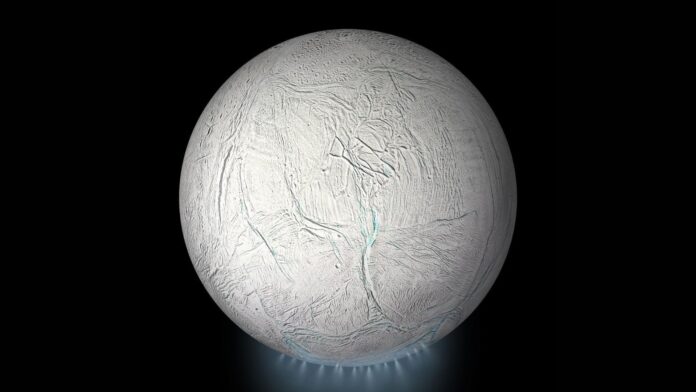New research suggests that some of the smallest icy moons in the outer solar system may contain subsurface oceans that are… boiling. Despite this extreme condition, scientists believe life could still potentially survive in these hidden aquatic environments.
The Hidden Oceans of Icy Moons
For years, evidence has mounted that several icy moons—like Saturn’s Enceladus—aren’t entirely frozen. Instead, they likely possess liquid oceans sandwiched between their icy shells and rocky cores. This is significant because wherever water exists on Earth, life finds a way. The prospect of these subsurface oceans makes them prime candidates in the search for extraterrestrial life.
Thinning Ice, Rising Temperatures
Geophysicist Maxwell Rudolph led a study examining how changes in the thickness of icy shells affect the pressure on these hidden oceans. The team discovered that as ice melts from the bottom of these moons, the pressure on the oceans below decreases.
On smaller moons—such as Mimas, Enceladus, and Miranda—this pressure drop could reach a “triple point.” This is where ice, liquid water, and water vapor can coexist simultaneously. The result? Layers of the ocean nearest the icy shell could boil.
However, this isn’t the high-temperature boiling familiar from kitchens. It’s a low-temperature process occurring close to freezing (0°C / 32°F), meaning any potential life below the boiling layer would likely be unaffected.
Larger Moons Fracture Instead
Larger icy moons (over 370 miles wide), like Uranus’s Titania, behave differently. Instead of reaching the triple point, their icy shells crack under the reduced pressure. The study suggests that Titania’s wrinkled geology may be evidence of past ice-shell thinning followed by refreezing.
Implications for Extraterrestrial Life
The boiling process could create clathrates—icy structures that trap gas molecules. Researchers plan to further investigate this phenomenon to understand how released gases interact with the surface and what geological features might result.
The discovery doesn’t eliminate the possibility of life; it merely adds another complex factor to consider in the search for habitable environments beyond Earth. The presence of boiling oceans, while unusual, doesn’t necessarily preclude life if conditions remain stable enough below the boiling zone.






































